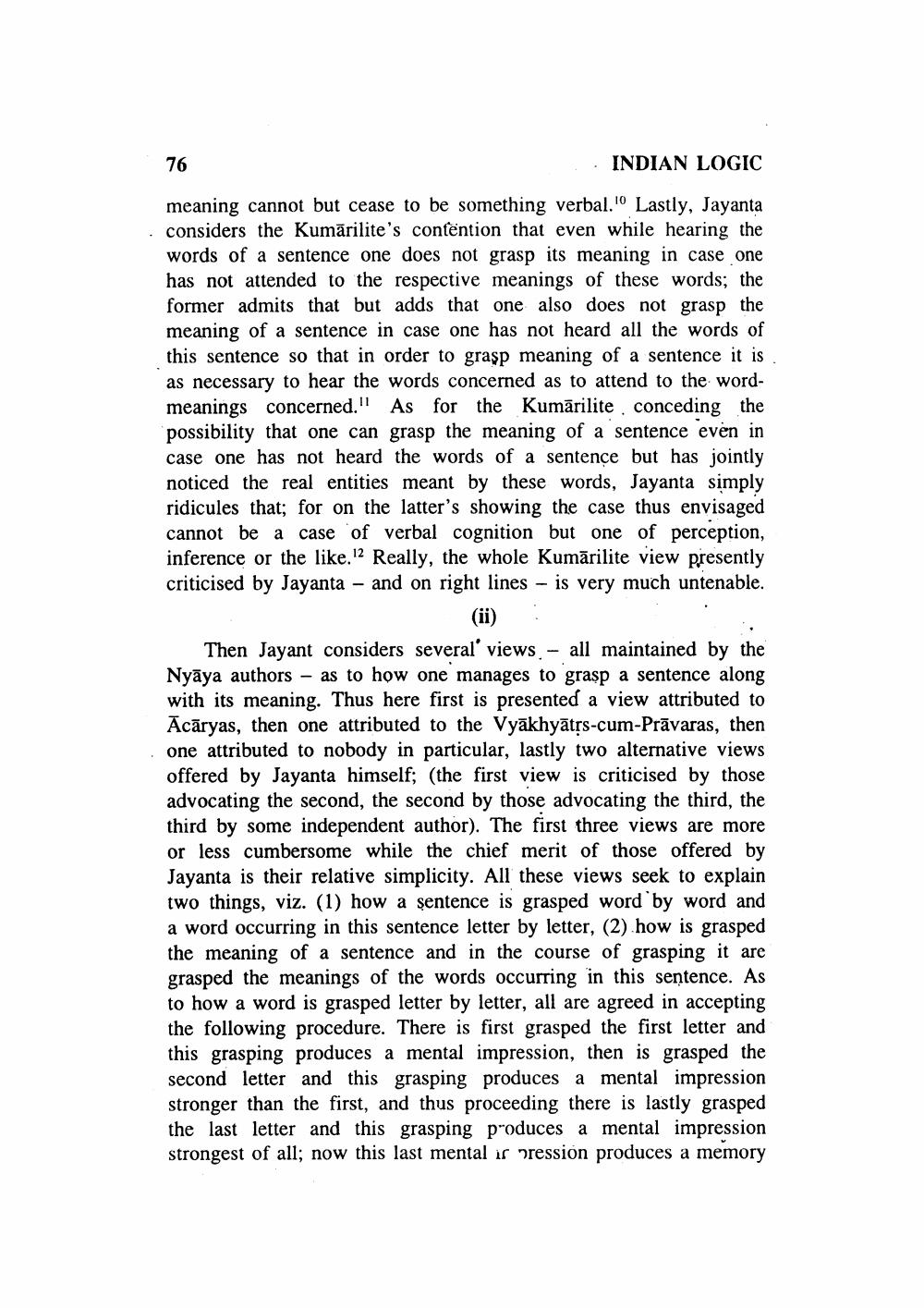________________
76
· INDIAN LOGIC
meaning cannot but cease to be something verbal. Lastly, Jayanta considers the Kumārilite's contention that even while hearing the words of a sentence one does not grasp its meaning in case one has not attended to the respective meanings of these words; the former admits that but adds that one also does not grasp the meaning of a sentence in case one has not heard all the words of this sentence so that in order to grasp meaning of a sentence it is as necessary to hear the words concerned as to attend to the wordmeanings concerned." As for the Kumārilite . conceding the possibility that one can grasp the meaning of a sentence even in case one has not heard the words of a sentence but has jointly noticed the real entities meant by these words, Jayanta simply ridicules that; for on the latter's showing the case thus envisaged cannot be a case of verbal cognition but one of perception, inference or the like.12 Really, the whole Kumārilite view presently criticised by Jayanta - and on right lines - is very much untenable.
(ii) Then Jayant considers several' views - all maintained by the Nyāya authors - as to how one manages to grasp a sentence along with its meaning. Thus here first is presented a view attributed to Ācāryas, then one attributed to the Vyākhyātrs-cum-Prāvaras, then one attributed to nobody in particular, lastly two alternative views offered by Jayanta himself; (the first view is criticised by those advocating the second, the second by those advocating the third, the third by some independent author). The first three views are more or less cumbersome while the chief merit of those offered by Jayanta is their relative simplicity. All these views seek to explain two things, viz. (1) how a sentence is grasped word by word and a word occurring in this sentence letter by letter, (2) how is grasped the meaning of a sentence and in the course of grasping it are grasped the meanings of the words occurring in this sentence. As to how a word is grasped letter by letter, all are agreed in accepting the following procedure. There is first grasped the first letter and this grasping produces a mental impression, then is grasped the second letter and this grasping produces a mental impression stronger than the first, and thus proceeding there is lastly grasped the last letter and this grasping produces a mental impression strongest of all; now this last mental ar pression produces a memory




